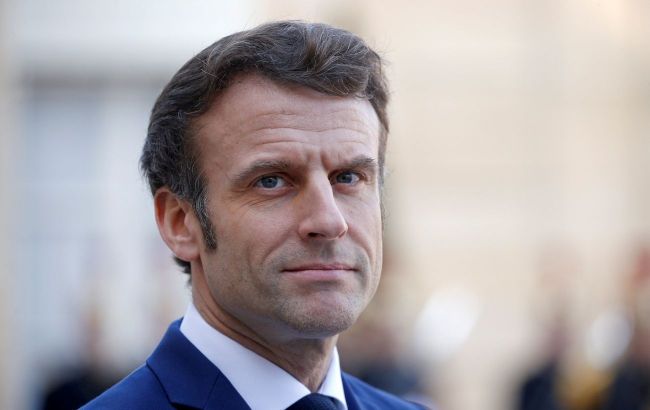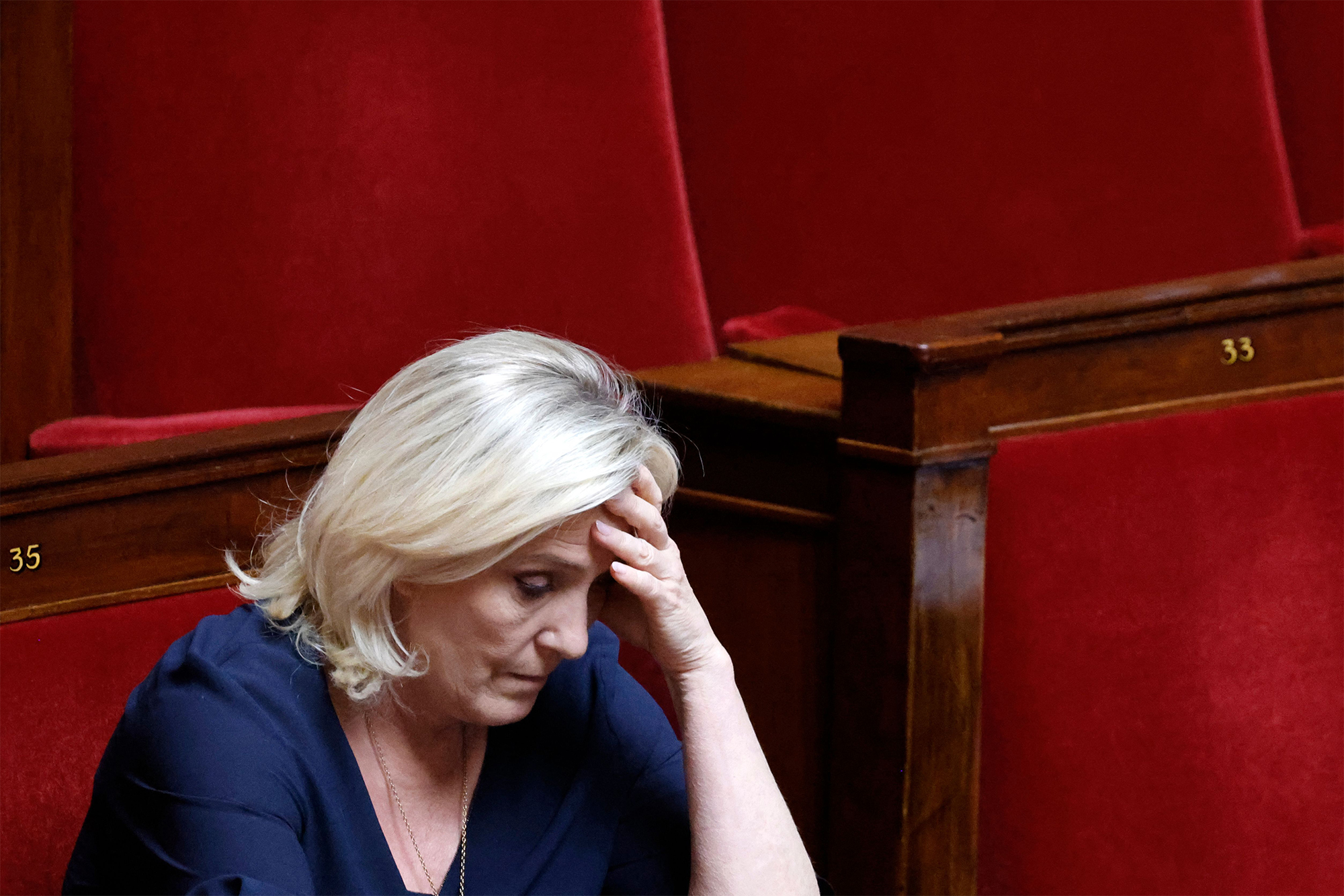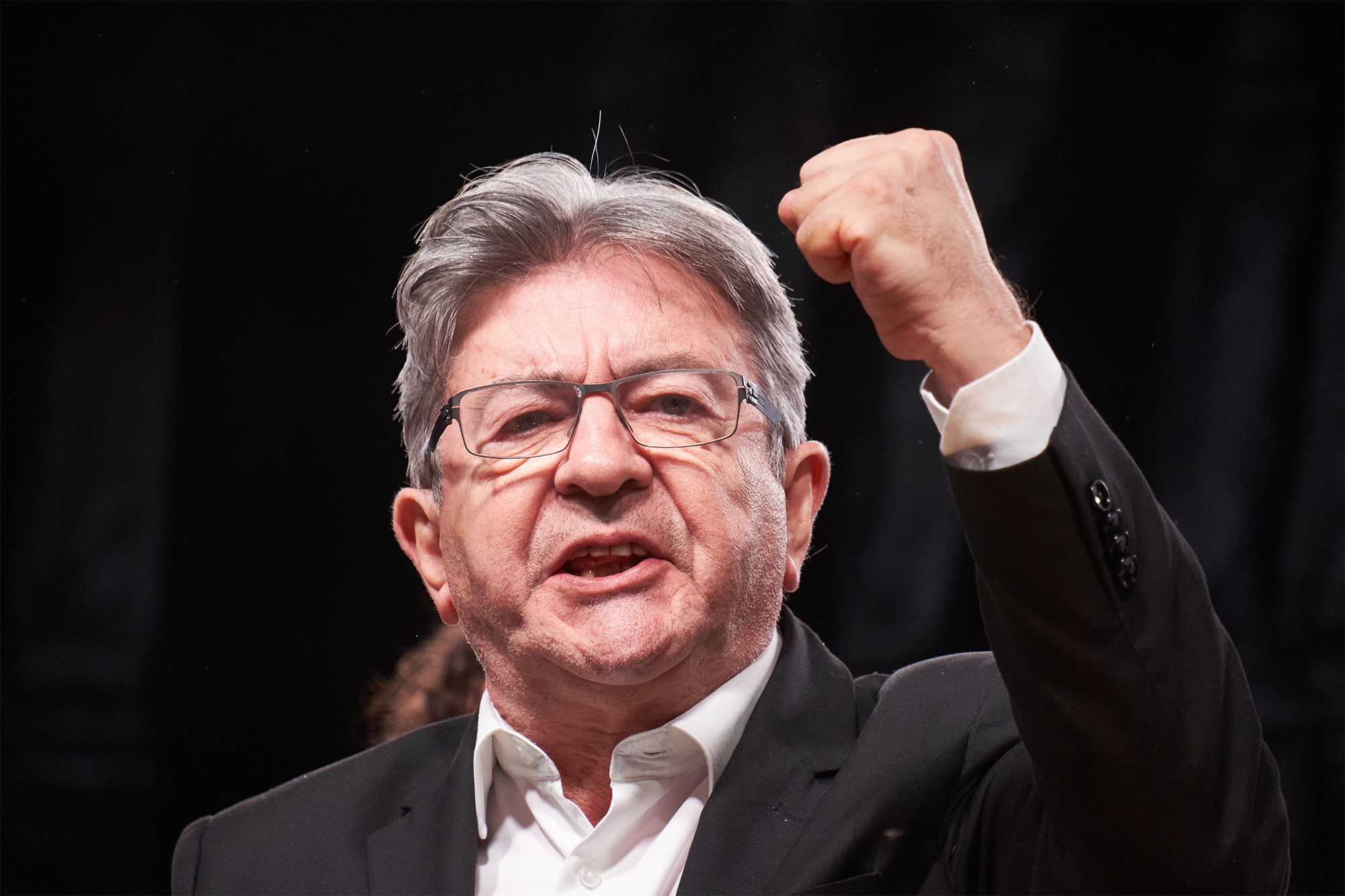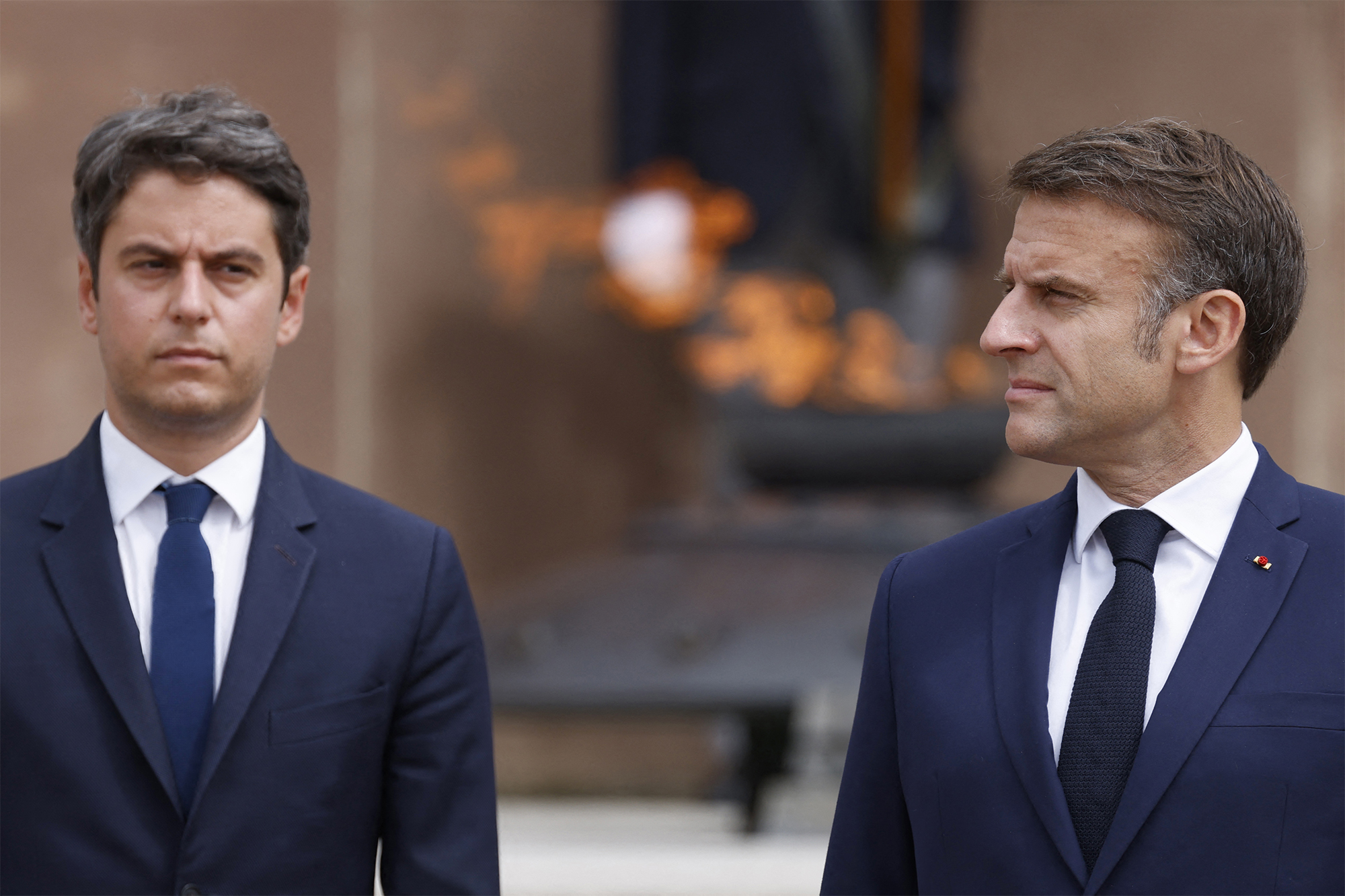Macron's gambit: How far-right lost French elections and what's next
 French President Emmanuel Macron (Getty Images)
French President Emmanuel Macron (Getty Images)
What are the results of the early parliamentary elections in France, who will form the new French government, and whether it will affect Ukraine - read in RBC-Ukraine article.
Contents
- Who won parliamentary elections in France
- What the new French government may look like
- What Ukraine should expect from French election results
Who won parliamentary elections in France
On the evening of Sunday, July 7, exit polls showed preliminary results of the second round of elections to the National Assembly (lower house of parliament), which surprised not only France but also everyone who followed the French vote. The far-right National Rally party, whose leader is Marine Le Pen, known for her pro-Russian (or, more recently, at least Ukraine-skeptical) views, lost crushingly despite winning the first round.
In the morning, the official results of the voting confirmed the exit polls' forecast. The far-left New Popular Front received the most votes in the second round (178 seats), followed by Emmanuel Macron's presidential coalition (162 seats), and Le Pen's National Rally (143 seats). Another 69 seats were фаеук the Republicans, and the rest of the 577 seats in the parliament were shared by candidates from other parties.
However, each of the three largest political parties is very far from an absolute majority in the parliament - 289 seats. Therefore, there is no clear winner in this election as such. But the second round of voting brought another, more important victory: the far-right did not win power.

Marine Le Pen's party lost the French parliamentary elections (photo: Getty Images)
According to Anastasiya Shapochkina, President of the Eastern Circles think tank and a lecturer at the Sciences Po Institute in Paris, this result was facilitated by a temporary situational alliance between the left and Macron's coalition.
The essence of this situational alliance was that candidates from the left would step behind in constituencies where a representative of Macron's coalition could win, and the Macronists would, on the contrary, concede to the left. Instead of three candidates, either a leftist and a far-rightist or a Macronist and a far-rightist were to remain in the districts, greatly increasing the chances of outperforming Le Pen's representatives.
"And this reshuffle contributed to the fact that the National Rally came in third. This agreement was not a political coalition between all the leftists and Macron, but it was a situational alliance for the second round of voting. This is not the first time this tactic was used, this practice existed before and succeeded before. Therefore, they were betting that it would work this time," Shapochkina explained in a comment to RBC-Ukraine.
As a result, Le Pen lost the opportunity to take control of the French parliament, because even in the case of an alliance with other political forces that did not mind cooperating with the far right, the National Rally would not have enough mandates for an absolute majority. France can now forget about the threat of a right turn, at least for the next few years.
What the new French government may look like
Now the conditional winners of the election face another challenge - forming a new French government. Since neither the Macronists nor the far-left front won an absolute majority, they will have to look for opportunities for a coalition to form a government. And this is not an easy task.
In France, the head of government is appointed by the president, and formal parliamentary approval is not required. But the parliament can pass a vote of no confidence in the government at any time. Therefore, traditionally, the president appoints a representative of the party that won the most seats in the National Assembly to head the government.
After the exit polls were announced last night, Jean-Luc Mélenchon, leader of the France Unbowed party, which is part of the left-wing New Popular Front bloc, said that a representative of the far left should become the new prime minister.
"The president should call the New Popular Front to power," Mélenchon stressed, adding that Macron "must admit his defeat" in the election.
The current Prime Minister Gabriel Attal, who represents Macron's coalition, opposed cooperation with Mélenchon. Hence, a coalition between the New Popular Front and Macron's followers is very unlikely.

Jean-Luc Mélenchon wants the new prime minister to be a member of the far left (photo: Getty Images)
But the far left, of course, has no chance of forming the government on its own. Since the New Popular Front is not a homogeneous structure, but an association that includes leftist and green parties, disagreements about future plans have already surfaced. And it threatens to split the bloc.
As of now, Mélenchon has not even been able to get the support of other parties in the New Popular Front, while other leaders of the far-left association made contradictory statements on Sunday, according to Politico. For example, one of the leaders of the Socialists, a much more moderate political party than the radical France Unbowed, Raphaël Glucksmann, called for "conversations, debates and changes in political culture."
According to Anastasiya Shapochkina, several scenarios for a new French government are being debated today. One of them is cooperation between the Macronists and the far left on certain issues.
"For example, some issue arises, whether it is the budget, social security, or defense, and these forces agree on each of them. This is, of course, a very big headache, but it is a much better option than if the National Rally had gained a majority," she said in a comment to RBC-Ukraine.
Another scenario is a government of technocrats, whose members will be equally distant from all parties. But, as Shapochkina says, this option looks the least realistic now. It could have been possible if Le Pen's National Rally had managed to gain a relative majority in parliament, but today Macron still has a strong position for coalition negotiations, even though his political party is in second place.
According to Shapochkina, everyone in France expects that the Macronists and the far left will negotiate on each of the future ministers. In the most optimistic scenario, this issue will be postponed until the Olympic Games, which will take place in Paris from July 26 to August 11.
And this scenario has already begun to materialize. On Sunday evening, Prime Minister Attal announced that he would resign in the morning. But this afternoon it became known that Macron did not accept the resignation and asked Attal to remain head of the government to "ensure stability in the country."

Gabriel Attal remains Prime Minister of France for now (photo: Getty Images)
So the next step will be the election of a new president of the National Assembly, which will take place on July 19, when the new French parliament will meet for the first time.
"And then there will be negotiations. But it seems to me that the appointment of radical prime ministers is very unlikely because both branches of government - the executive and the legislature - must cooperate. The National Assembly should not reject the one proposed by the president," Shapochkina added.
Olivier Faure, leader of the Socialist Party, which is part of the New Popular Front, said today that the far-left should propose its candidate for prime minister this week. They don't know who it will be yet, but according to the Socialist leader, Mélenchon does not have the right profile for the post, as there is a lot of disagreement around his figure even in the far-left alliance.
According to Shapochkina, there are enough "sane" people among the far left who could be candidates for government positions. However, the most likely scenario, in her opinion, is that someone who is not very public, moderate, and "pleasant" to everyone - both for the leftists and the Macronists - will be elected prime minister. The situation with ministers may develop this way too.
"We may see people whom we have not seen yet, but who are important in French political life and who are just not very public and will not split public opinion much. Everyone is waiting for real agreements. Even though Mélenchon said that he was not ready for compromises, they do not have an absolute majority, and they have no other choice but to compromise," Shapochkina summarized.
Of the 178 seats won in the second round by the New Popular Front, 72 are held by MPs from Mélenchon's France Unbowed, 64 by the Socialists, 33 by the Greens, and 9 by Communists. Theoretically, if Macron were able to agree on cooperation with the Socialists (who have hinted they are for negotiations) and the Greens, together with the 162 votes of the presidential coalition, it would provide a considerable number of MPs in parliament and allow him to form a minority government.
But, as Shapochkina noted in an interview with RBC-Ukraine, no one in France knows for sure how events will develop further and what agreements the leaders of the parliamentary race will ultimately reach.
What Ukraine should expect from French election results
Since Le Pen's political party, which promised to stop supplying Ukraine with Scalp missiles before the first and second rounds, lost the election, it is unlikely that we will see any radical changes in French policy toward Ukraine. The position of the far-left Mélenchon is not too different from Le Pen's, but it is unlikely that he will be allowed to lead the French government.
Besides, the French president determines foreign policy, and Macron will hold this position for another three years, until the next election in 2027.
Sources: Le Figaro, BFM TV, Politico, statements by French politicians, and comments by Anastasiya Shapochkina, President of the Eastern Circles think tank and lecturer at the Sciences Po Institute in Paris.




